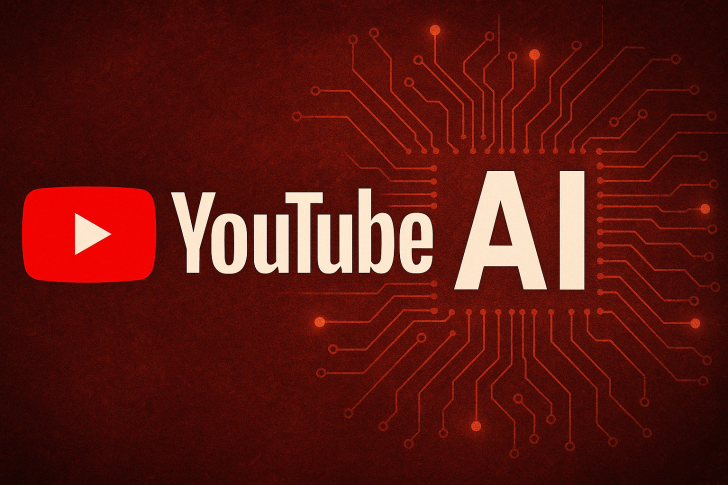The streaming wars might be taking an unexpected turn. As artificial intelligence reshapes content creation, YouTube's unique combination of scale, technology, and creator-driven infrastructure could give it an edge that traditional streaming giants simply can't replicate.
YouTube's AI Advantage
According to zephyr, a well-known tech commentator, "YouTube has a pretty big opportunity — they can annihilate Netflix if they push hard on AI content generation." It's a bold claim, but not without merit. YouTube already dominates with over 2.7 billion monthly users, but its real opportunity isn't in growing the audience—it's in revolutionizing how content gets made. Through Google DeepMind, Gemini, MusicLM, and Imagen Video, YouTube's parent company has quietly assembled one of the most powerful AI toolkits in the world.
If these technologies were integrated directly into YouTube Studio, they could enable a completely new type of content creation. Imagine creators using AI to instantly produce videos from scripts, dub content into multiple languages with perfect lip-sync, generate entire scenes using AI video models, and automatically edit based on what audiences actually engage with. This would dramatically lower barriers to entry and multiply content output—something Netflix's tightly controlled production model simply can't do.
Netflix spends over $17 billion annually on original programming, but if AI can produce compelling content at a fraction of that cost, that advantage starts crumbling. YouTube's decentralized model—powered by millions of independent creators—would only get stronger with AI tools. Unlike Netflix's curated library, YouTube could become an infinite, personalized entertainment engine, generating everything from tutorials to AI-created movies tailored to individual viewers.
The key difference? YouTube wouldn't need to match Netflix's quality—it could dominate through sheer quantity and adaptability.
Google's Sleeping Giant Status
While YouTube experiments with AI features like video summaries and automated thumbnail creation, these are just early steps. As AI video generation matures, YouTube could become the first major platform to offer a full AI production suite. That would blur the line between human creators and algorithms, creating a future where content is generated, optimized, and distributed with minimal human input.
YouTube's real advantage isn't just technology—it's data. The platform processes billions of hours of watch time monthly, giving Google unmatched insights into what viewers want. That data can train AI systems to create exactly what audiences crave.
If YouTube goes all-in on AI content generation, the entertainment industry faces a seismic shift. Netflix and Disney+ operate in a high-cost creative economy. YouTube, meanwhile, could evolve into a self-expanding ecosystem where humans and algorithms continuously generate and refine content together. The result: hyper-personalized entertainment for viewers, infinite creative tools for creators, and deeper targeting for advertisers—potentially the biggest disruption in media since streaming itself emerged.
 Peter Smith
Peter Smith

 Peter Smith
Peter Smith


